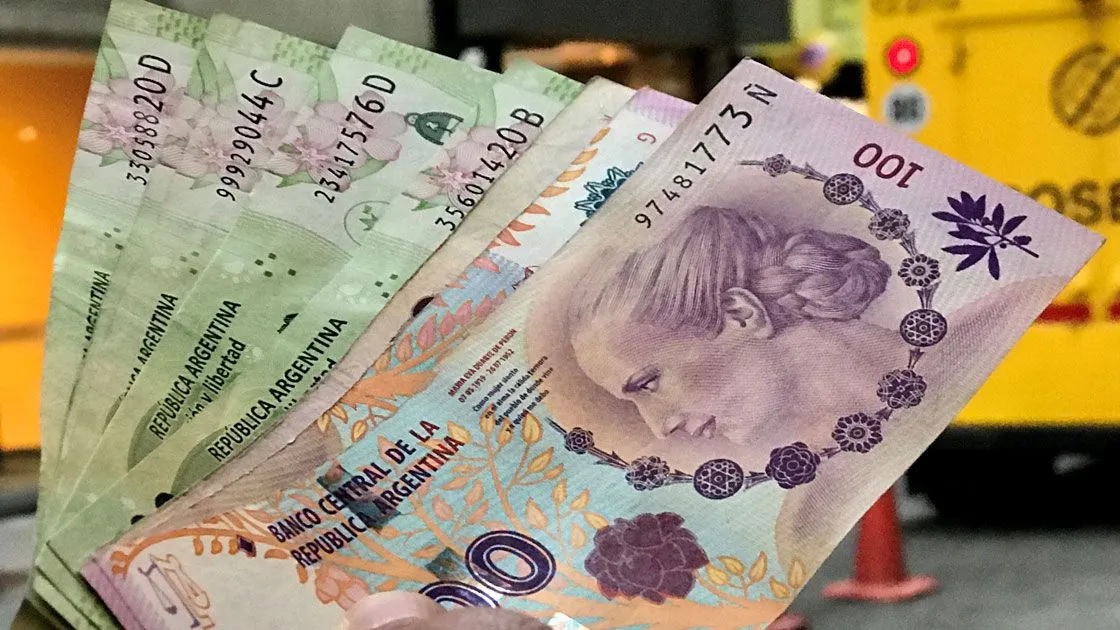RIO DE JANEIRO, BRAZIL – After a strong increase in February, inflation in March continued with a sustained upward trend despite the measures taken by the Government to try to contain prices.
The increase in tariffs, schools, fuels, and prepaid services are some of the factors that contributed to the upward trend. According to private sector estimates, inflation will be “at least 5%” in the month.
“It has been 17 months since core inflation, which is the one that sets the pace, has been above 3% per month and averages 4% in the last months, that is 60% annualized. These are the levels at which the economy has been sailing,” analyzed Matías De Luca, an economist at LCG consulting firm.

In an interview with Bloomberg Línea, he explained: “On top of that, there is an exchange rate that is increasingly adjusted upwards and food prices that are increasing as a result of the war conflict in Ukraine, which caused commodity prices to rise, especially wheat and corn. The latter we see reflected especially in March.”
“On this picture, which is nothing more than the dynamics of inflation in our country, we can add agreed increases such as electricity and gas (20%), schools (12%), fuel (9% in mid-March), and prepayments (6%)”, he pointed out.
FOOD, SKYROCKETING
De Luca pointed to the high level of the basic food basket increases. “On the other hand, there is the increase in food and beverages, which, according to our LCG inflation index, averaged 5.5% in the last four weeks. All this is a combo that will impact March,” he advanced.
“The economy is sailing without anchors (the exchange rate has been lost, the tariffs have softened, and the monetary policy may have its effect more towards the medium term). The only thing left is wages, whose evolution is still unknown and will impact the social fabric”, he pointed out.
In this scenario, the economist stated: “We will have to get used to adjusting prices (contracts) more and more frequently since each increase is quickly outdated”.
MARCH INFLATION WILL BE HIGHER
Isaías Marini, an economist of the Econviews consulting firm, pointed out: “We estimate that March inflation will be at least 5%”. “Although the government attributed the dismal February figure to the war in Ukraine, the impact actually fell in March,” he said.
“Food went up sharply and will be the component with the highest incidence. In addition, the statements made by President Alberto Fernández regarding ‘a war against inflation‘ (which finally ended up being isolated measures) did not help,” he considered.
Thus, he affirmed that the President’s words generated an effect contrary to the one sought by the Government. “Given the fear of compulsive freezes, in some items -particularly food items- precautionary increases were recorded,” he said.
“In addition, March is typically a bad month for inflation in Argentina. With the start of classes and the update of private school fees, the Education item and clothing prices recorded significant increases due to the change of season,” he remarked in a conversation with Bloomberg Linea.
For this reason, the private sector has already raised its forecast for this year. “The acceleration of the last two months increases the inflationary inertia of the coming months, and in this context, we have revised our inflation projection to 61% for December,” he said.
ANNUAL EXPECTATIONS SOAR
According to a report by the Center for Research in Finance (CIF) of the Business School of the Torcuato Di Tella University, expected inflation soared to 53.7% this year.
It is the highest value since the index began to be prepared in 2006 and represents an increase of 3.4 percentage points compared to February’s measurement.
“The increase in inflation expectations was driven by a marked increase of 4.5 percentage points in inflation expectations in the country’s interior,” the survey said.
In turn, Greater Buenos Aires presented the lowest average inflation expectations, with 50.4%, while in the Capital and the interior of the country, levels of 53.1% and 55.3%, respectively, were observed.
THE EFFECT OF INTEREST RATES
After the last inflation figure was released, the Central Bank decided to validate a new increase in the reference rate. However, Analytica, a consulting firm, does not forecast an effect on the economy due to this decision.
“We expect that the rate hike will not have a significant impact on inflation because the transmission of rates in a context of high disclosure of electronic means of payment and exchange restrictions is limited”, they stated and clarified: “Its impact may be amplified if it manages to coordinate expectations”.
Furthermore, the consulting firm stated that “it is expected that the effect on economic activity will be negative but less than in other countries given the low level of credit”.
With information from Bloomberg Línea

